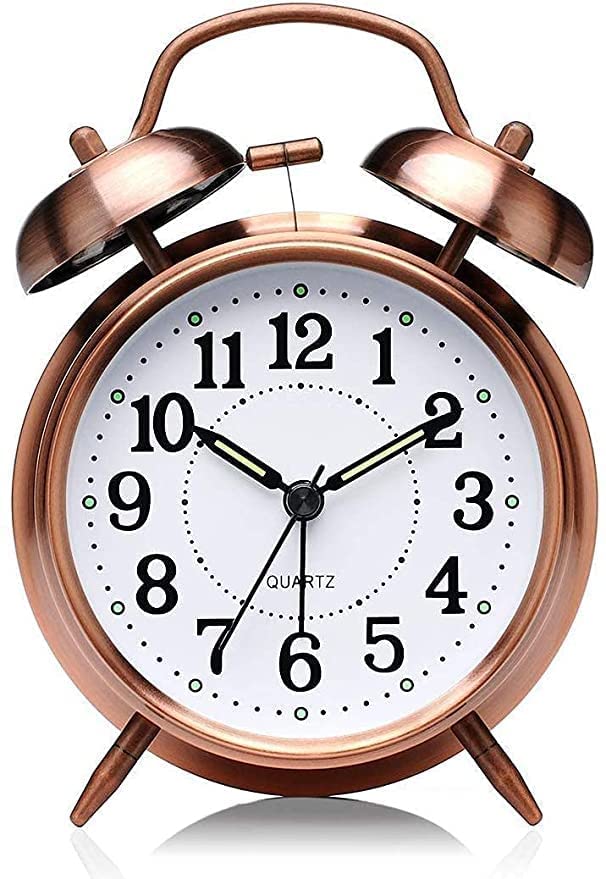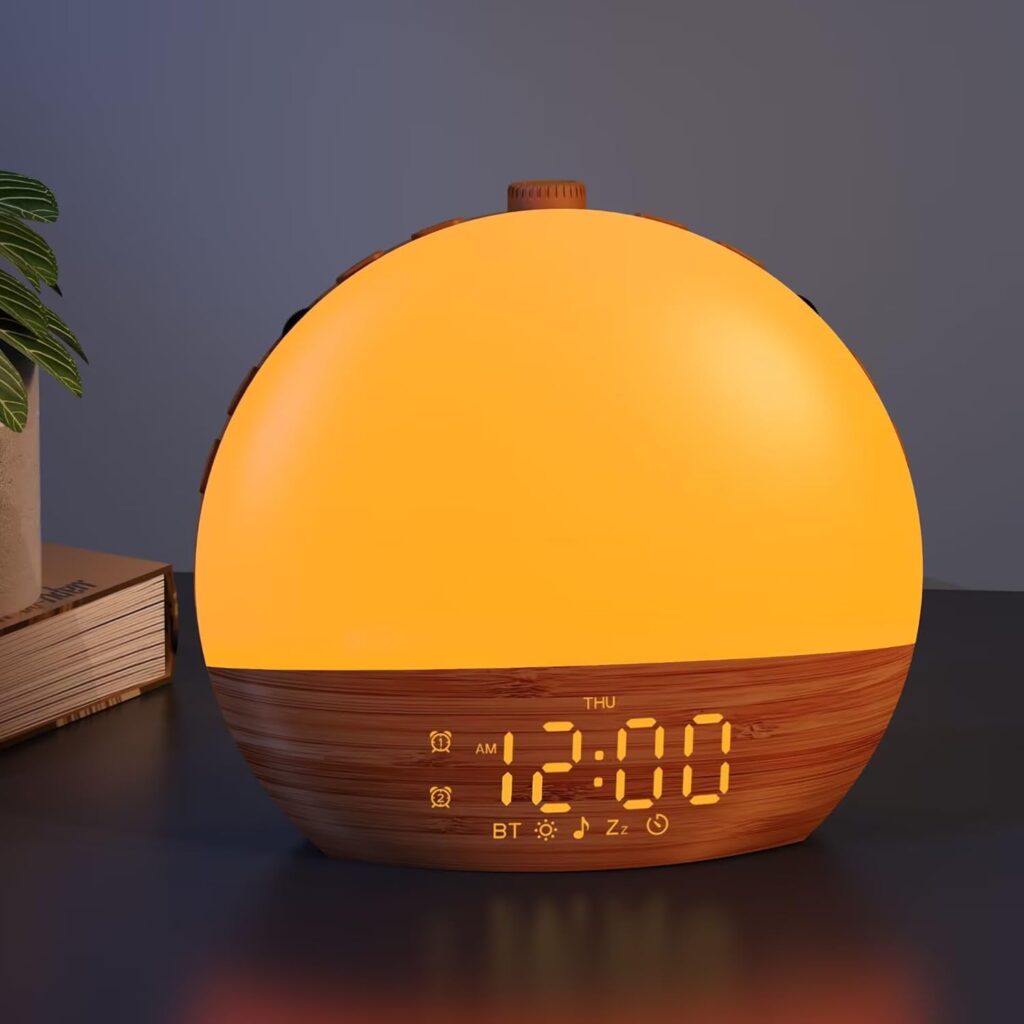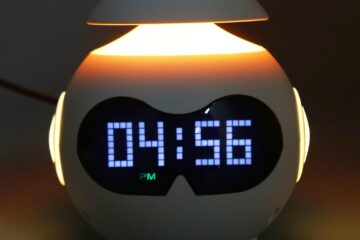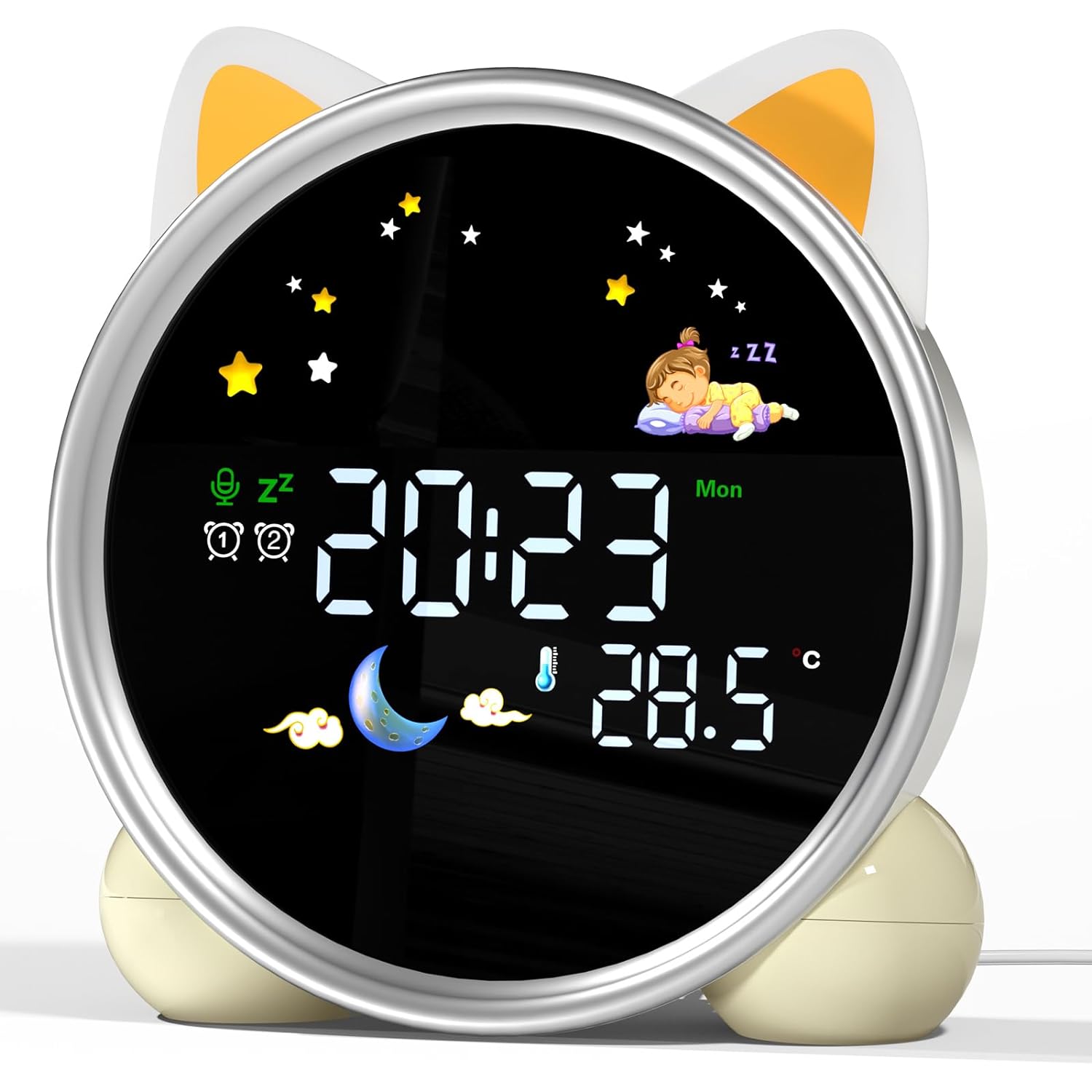Introduction
The Struggle of Waking Up
Mornings can be brutal — especially when your body wants to snooze and your alarm screams otherwise. Whether you’re a heavy sleeper or just bad at mornings, the tool you choose to wake up makes a big difference.

The Modern Dilemma: Clock or Phone?
Most of us reach for our phones first thing in the morning. They’re always nearby and easy to set. But does that mean mobile alarms are better than traditional alarm clocks? Let’s break it down.
Table of Contents
Understanding Alarm Clocks
What Is a Traditional Alarm Clock?
An alarm clock is a dedicated device designed to do one thing — wake you up. Unlike phones, they’re distraction-free and focused only on helping you get out of bed.
Types of Alarm Clocks
Analog Alarm Clocks

The classic ticking ones — loud bells, no snooze button. Simple and effective.
Digital Alarm Clocks

LED or LCD displays with programmable alarms and often include FM radios or USB ports.
Smart Alarm Clocks

Modern clocks with Bluetooth, Wi-Fi, and app controls. Some even sync with your sleep cycle.
Sunrise Alarm Clocks

These simulate natural sunlight to gradually wake you up. Ideal for improving mood and sleep quality.
Key Features and Benefits
- No notifications or screen time
- Reliable wake-up
- Can be placed far from bed
- Special designs for deep sleepers
Understanding Mobile Alarms
Alarm Features in Smartphones
Smartphones come with built-in alarm apps that let you:
- Set multiple alarms
- Use custom sounds
- Snooze easily
- Adjust volume and vibration
Apps and Smart Integrations
Third-party apps like Sleep Cycle or Alarmy track your sleep and wake you up gently during light sleep phases.
Why People Prefer Using Phones
- Always near you
- Easy to set
- Offers variety of tones and features
- Doubles as a nightlight or sleep sound machine
Head-to-Head Comparison
Reliability
Alarm clocks don’t rely on software updates or battery health. Mobile alarms can fail if your phone is dead or on silent.
Distraction Level
Alarm clocks are screen-free. Phones can tempt you to scroll TikTok for an hour before sleeping.
Customization
Phones offer more flexibility — ringtones, vibration patterns, and volume controls. Alarm clocks are simpler.
Health & Sleep Impact
Blue light from phones affects melatonin levels and disrupts sleep. Alarm clocks avoid this issue.
Power Backup
Most alarm clocks have battery backup. Phones need to be charged overnight — a risk if your charger fails.
Pros and Cons of Alarm Clocks
Advantages
- No screen, no distractions
- Built for waking you up
- Louder and more reliable
- Ideal for deep sleepers
Disadvantages
- Takes up space
- Basic models lack smart features
- Not as customizable
Pros and Cons of Mobile Alarms
Advantages
- Super convenient
- Multiple features and apps
- Already part of your routine
Disadvantages
- Easy to snooze
- Battery-dependent
- Screen time before bed harms sleep
Alarm Clocks for Different Types of Sleepers
Heavy Sleepers
Need extra-loud alarms with bed shakers or flashing lights.
Light Sleepers
Prefer gentle tones or sunrise alarms that don’t jolt them awake.
Kids and Teens
Fun designs, night lights, and multiple alarms work best.
Seniors
Large buttons, clear displays, and voice features help the most.
Does Using a Phone Alarm Affect Your Sleep?
Blue Light Exposure
Your phone emits blue light, which tricks your brain into staying awake. This delays melatonin production and affects sleep.
Nighttime Distractions
Notifications, social media, and endless apps keep you up longer than intended.
Can You Use Both Together?
A Smart Combination
Use your alarm clock by your bed and place your phone across the room as a backup.
Tips for Syncing
- Set alarms a few minutes apart
- Use different sounds
- Combine vibration and light
Tips for Better Mornings
Create a Healthy Sleep Schedule
Sleep and wake at the same time daily.
Avoid Screens Before Bed
Put your phone away at least 30 minutes before sleeping.
Keep Your Alarm Across the Room
It forces you to get up to turn it off — no more snoozing!
Final Verdict
Which One Should You Choose?
If you’re looking for distraction-free, reliable waking, a dedicated alarm clock wins.
If you want convenience, apps, and custom tones, your mobile phone may do the trick — but it comes with sleep-quality trade-offs.
Best choice? Use both smartly.
Conclusion
In the battle between alarm clocks and mobile alarms, the real winner is the one that suits your lifestyle and helps you wake up on time without ruining your sleep.
Alarm clocks are simple, powerful, and distraction-free. Mobile alarms are flexible but come with risks — especially if you’re a chronic snoozer or a midnight scroller.
Start smarter mornings with the right tool — or better yet, a combination of both.
FAQs
1. Are alarm clocks better for your health than mobile alarms?
Yes. Alarm clocks don’t emit blue light or encourage screen time before bed, promoting better sleep hygiene.
2. Can mobile alarms be loud enough for heavy sleepers?
Some apps offer loud sounds, but alarm clocks with bed shakers or sirens are more effective for deep sleepers.
3. What is the best type of alarm clock to buy?
It depends on your needs. For heavy sleepers, use extra-loud or vibrating alarms. For a natural wake-up, use a sunrise alarm.
4. Should I stop using my phone before bed?
Yes. Reducing screen time before bed can improve sleep quality significantly.
5. Can I use a smart speaker as an alarm?
Absolutely! Devices like Amazon Echo or Google Nest can be set as alarms and even simulate sunrise lighting with routines.



0 Comments